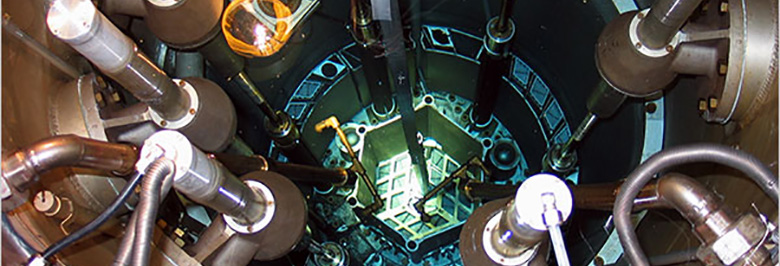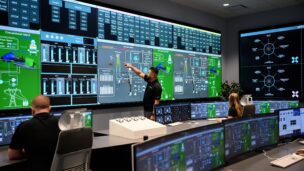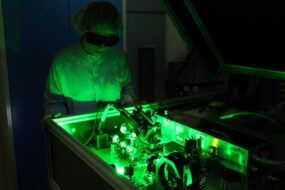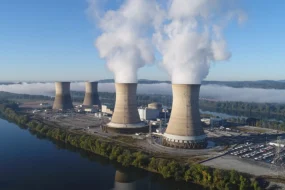The pieces that make up nuclear reactors are made of strong stuff. Each material for each component undergoes rigorous testing to make sure it’s radiation-hardened and durable. Rapidly creating new, innovative materials can make the difference between a successful project and, well, the rest.
Problem is, those testing processes are manual, costly, and time-intensive, generally taking years before a new material can be qualified for use in a reactor.
N-ergy aims to fix that. The startup recently raised a $1.5M pre-seed round to build out a data-powered autonomous advanced materials factory that can dramatically speed up the design, manufacture, and qualification of new materials—from five years to three months, start to finish.
- Boost VC and Bee Ventures led the funding round.
N-ergy 101: Cofounders Madhu Ravichandran and Vinay Ramesh founded their startup eight months ago to fill the need for durable, high-quality materials at a rate suitable for the rapidly growing and changing nuclear energy sector.
N-ergy’s manufacturing concept speeds up the process via a few avenues:
- The microfactory, which can autonomously synthesize samples of new materials with slightly different properties so that several versions of a potential product can be tested at once.
- Contracted access to MIT’s reactor, one of three in the US licensed for advanced materials testing.
- An AI-driven backend that can synthesize the lessons learned from each test and train the microfactory for the next attempt, so there’s “no such thing as a wasted test,” Ramesh told Ignition.
The team says its approach makes it possible to test 40,000 materials for the time and cost it takes current systems to test one.
Though the team is starting with the nuclear energy sector, that’s far from where it’s stopping. There’s demand for rad-hard materials for use in a wide array of applications, including aerospace, defense, and medicine. N-ergy wants to be the go-to advanced materials provider for all of them.
What’s next: Now that the term sheets are signed, the N-ergy team has a lot of building to do and phone calls to make. Within 12-15 months, Ramesh said, the company aims to build out the first version of its microfactory and start signing customer contracts for materials testing.
- The team has already signed a letter of intent with a reactor company.
- The company will fully fund much of the initial testing and development, but customers will share the costs of later rounds, Ravichandran said.
- Either way, N-ergy would own the material produced and reserve the right to license its use.
The company—which currently consists of the cofounders working with a board of expert advisors—plans to bring on two hires by the end of the year to help with automation, materials science, and AI.
Lead Reporter of Ignition





